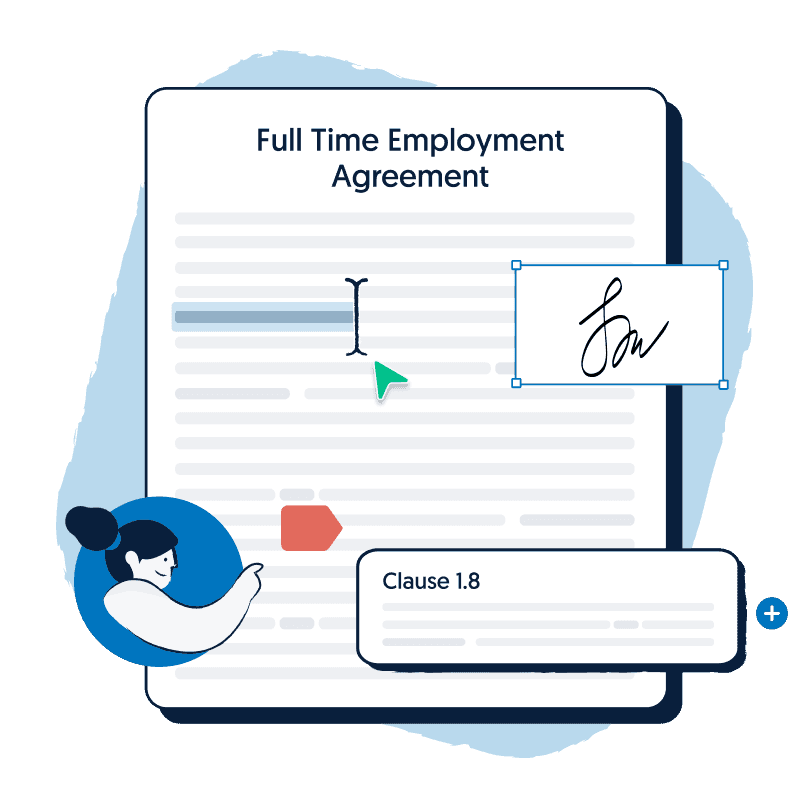Sydney-based lawyer, specialising in corporate operations. Formerly Legal Intern at Lawpath.
💡 Key insights
- In Australia you generally cannot withhold an employee’s entitlements simply because they resign without giving notice and must still pay wages, accrued annual leave and other owed amounts.
- Employers may deduct money from final pay only to the extent permitted by law or a modern award or enterprise agreement, such as for unreturned property or agreed deductions.
- Failure to give the required notice may allow the employer to withhold payment in lieu of notice rather than requiring work during the notice period, but this does not cancel other statutory entitlements.
- Before making any deductions from a final pay or entitlement payment employers should check applicable awards, agreements and legal requirements to avoid unlawful underpayment claims.
So, you just pieced together that your employee has resigned without giving you notice. You are confused whether you are entitled to withhold an employee’s entitlements if they resign without notice. Furthermore, you are panicking how this will affect you legally. The minimum notice period that an employee must give you is dependent on the period of time that the employee has worked with you. This article will detail if you can withhold an employee’s entitlements if they resign without notice.
Is it Legal to withhold an Employee’s Entitlements if they Resign without Notice?
There is a common misconception that employees must give notice to employers before resignation. However, there is no legal requirement that the employee must give the employer notice. If employees take this route, there are consequences that the employee will have to face.
Most Modern Awards contain a ‘Termination of Employment’ clause as detailed by the National Employment Standards which requires an employee to give specific minimum notice period of notice of termination.
- For less than a year: the minimum notice period is 1 week
- Between 1-3 years: the minimum notice period is two weeks
- Between 3-5 years: the minimum notice period is 3 weeks
- 5 years or more: the minimum notice period is 4 weeks
In short, you are able to withhold their entitlements up to the equivalent amount that the employee would of earned if they had provided the required notice period of termination.
However, the minimum notice period will only apply for employees that are covered under the Modern Award. Therefore, it is typical that many employers will implement an additional clause in an employee’s employment agreement.

Get your Full Time Employment Agreement legal document for free.
How Long can an Employer withhold an Employee Entitlement’s if they Resign without Notice?
As an employer, you must be aware that you do have certain entitlements such as legally entitled to withhold employee entitlements. But it is important to remember that you do not have absolute power to withhold an employee’s entitlement indefinitely.
If an employee has resigned without notice, you must begin to finalise the termination process to avoid legal liability. In order to confirm acceptance of resignation, employers draft and send a formal termination letter (notice or payment in lieu). In this process, you can demand that the employee return to work to return any confidential information in their possession or to pick up any of their belongings left at work.
Therefore, employers are not allowed to withhold employee entitlements for an indefinite period. Employee entitlements must be finalised by the next pay cycle.
Example
It is the middle of the working month and an employee at an insurance banking company has not come into work for a week. You have tried to contact him on his preferred contact number and have spoken to other employees. The next pay cycle is end of the working month. You are entitled to withhold his entitlements for 2 weeks or until the next pay cycle is due. During this time, you must send him a formal termination letter where he must accept his resignation from your company. Further, the employer is able to demand that he returns his building access pass card, any confidential client information and to collect miscellaneous personal belongings from his desk.
Final Thoughts
In conclusion, employers are entitled to withhold an employee’s entitlements if they choose to resign without notice. It is important to know your rights and obligations as an employer in each employment situation. Thus, having a written agreement in the employment contract which details processes of termination is helpful in avoiding disputes. Alternatively, you may consult a lawyer to understand your obligations. Being aware of issues that surround employment ensures that your business will run smoothly and efficiently.
Don't know where to start?
Contact us on 1800 529 728 to learn more about customising legal documents, obtaining a fixed-fee quote from our network of 600+ expert lawyers or to get answers to your legal questions.






